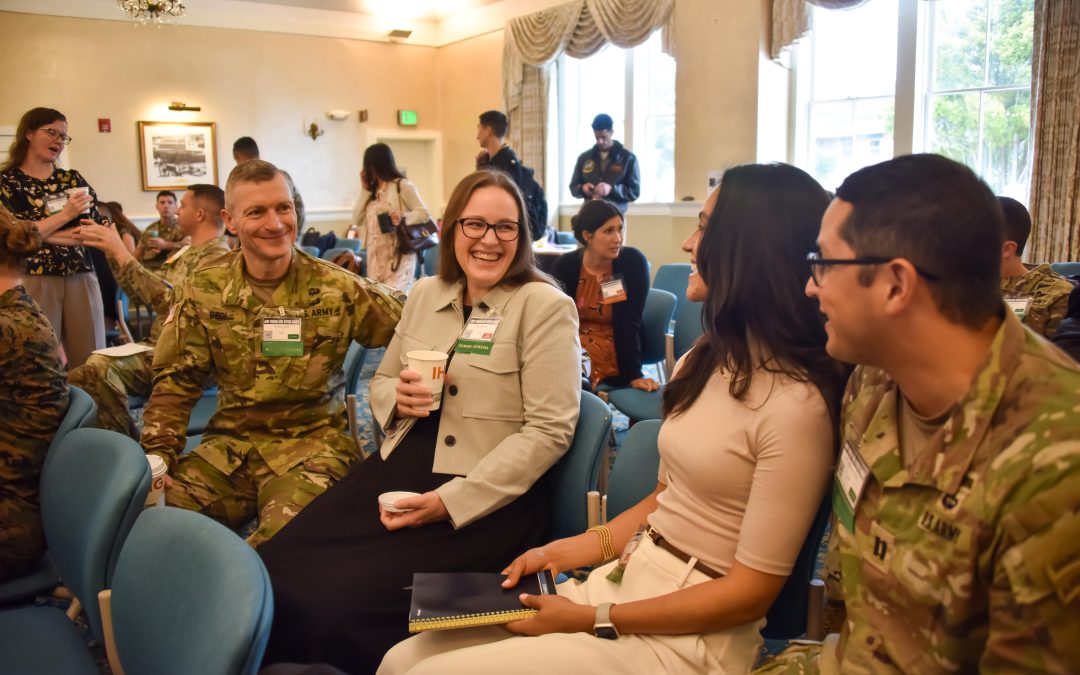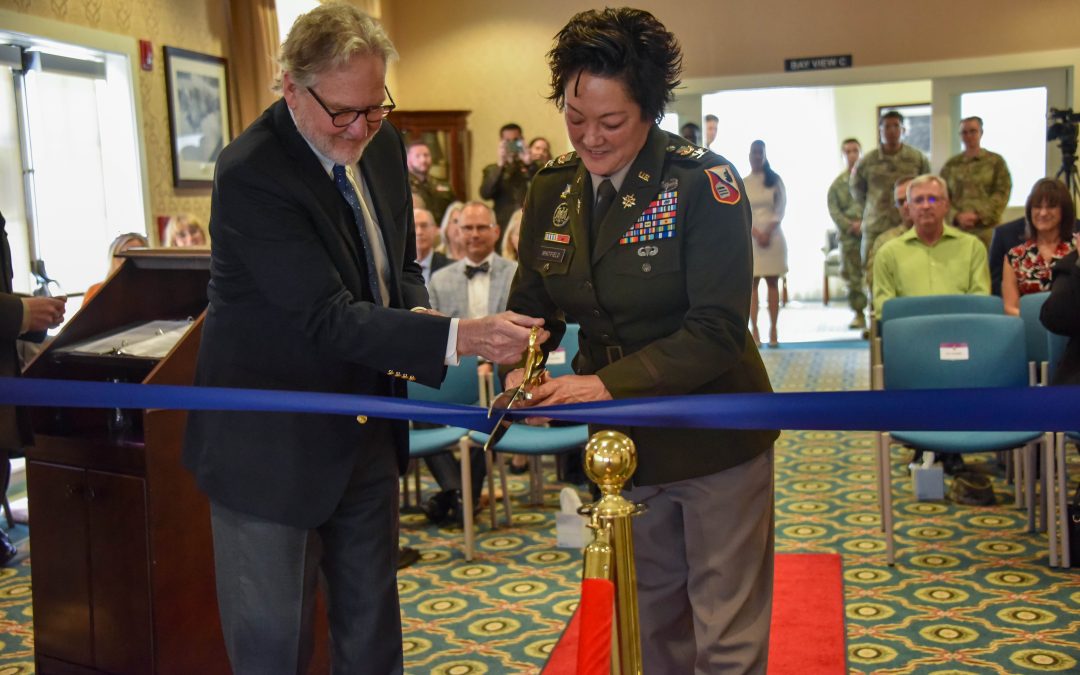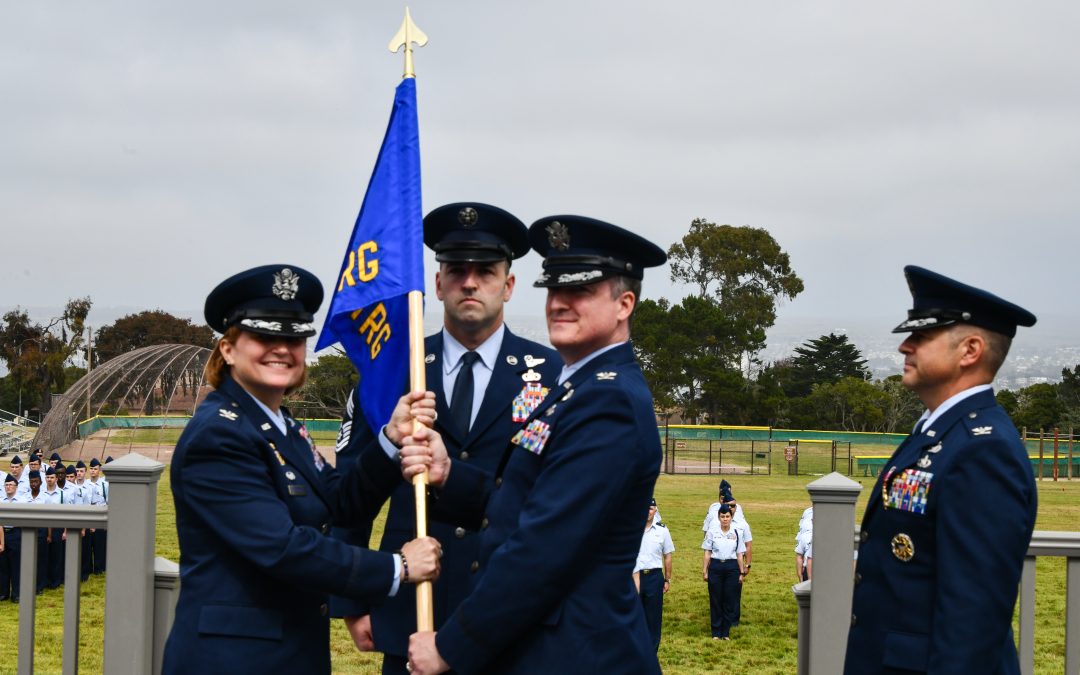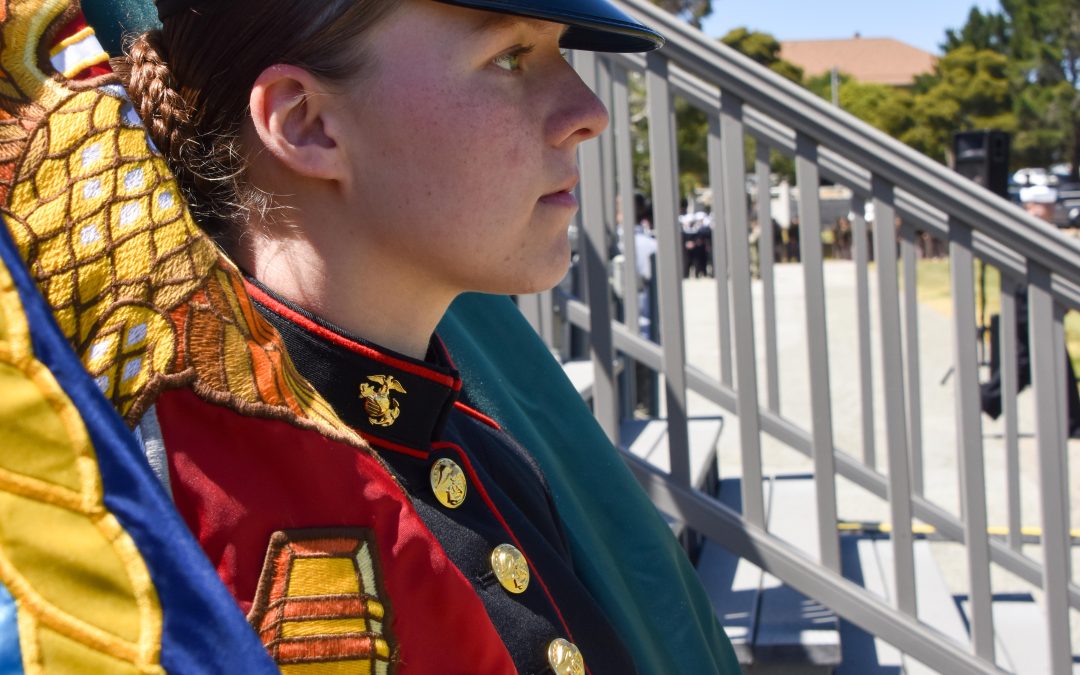By Patrick Bray
DLIFLC Public Affairs

Larry, Clyde, Edward, Delbert and Stanley Lopez stand in the back row from left to right for a family photograph. Arthur and Gordon (left and right) sit with their parents between them. In the early 1950s, these seven brothers from Albuquerque, New Mexico, enlisted in the U.S. Navy joining the Naval Security Group, thus beginning a three-generation family tradition of service as linguists. (Photo courtesy the Lopez Family)
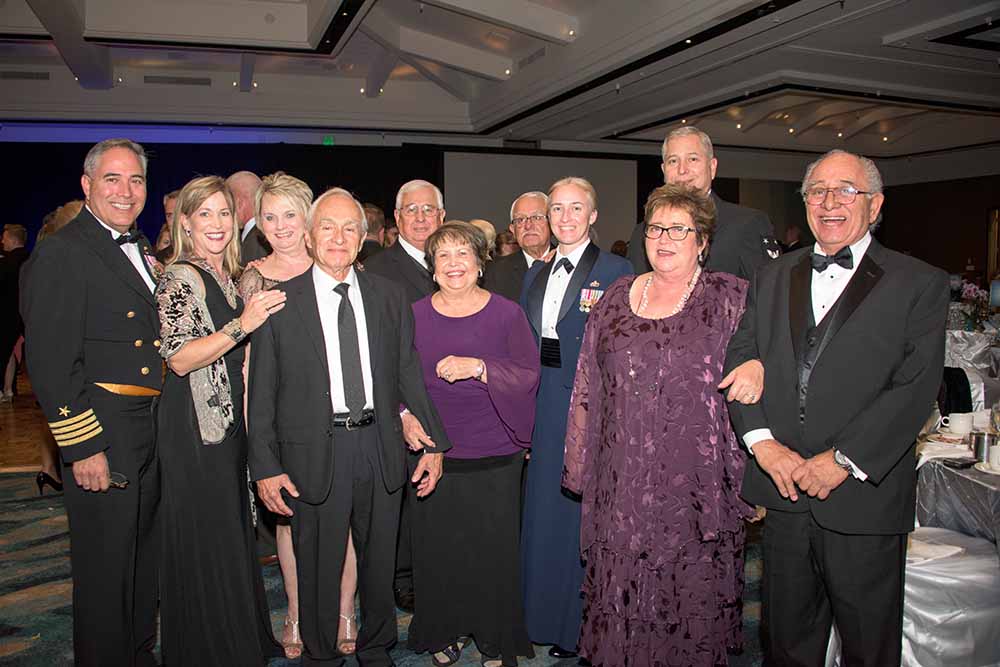
Stanley, Edward, Delbert and Gordon Lopez, four of the “seven famous Lopez brothers” who joined the U.S. Navy as cryptolinguists in the 1950s, attend the Defense Language Institute Foreign Language Center 75th Anniversary Ball with other family members Nov. 5. (Photo by Amber K. Whittington, DLIFLC Public Affairs)
MONTEREY, Calif. – In the early 1950s, seven brothers from Albuquerque, New Mexico, enlisted in the U.S. Navy joining the Naval Security Group, thus beginning a three-generation family tradition of service as linguists with most attending the Defense Language Institute Foreign Language Center or its predecessor schools.
Returning for the Institute’s 75th Anniversary Ball Nov. 5, four of the original seven brothers – Stanley, Edward, Delbert and Gordon – sat at a table along with other linguist family members who gathered to enjoy the festivities.
“There has likely been a Lopez at every major skirmish, battle or war the Navy participated in over the last 50 years,” said retired U.S. Navy Captain Bryan Lopez, Stanley’s son and a Russian linguist.
Although everyone in the family is a Spanish heritage speaker, most learned additional languages through their Navy service at the Defense Language Institute Foreign Language Center or a predecessor school.
The first generation
The first brothers to serve became known throughout the Navy as the “seven famous Lopez brothers” due to all of them serving in the Naval Security Group at one time. The legacy that they started would lead the family to more than 240 combined years of service in the Navy.
The Lopez family’s service began with the two oldest of the seven brothers, Arthur and Larry, who joined the Navy together in 1951. Arthur chose the communications path and would serve all over the world, but all the others became cryptolinguists.

Arthur Lopez, a Spanish linguist, and Stanley Lopez, a Russian linguist, in September 1968. (Photo courtesy the Lopez Family)
Larry, already a native Spanish speaker along with the rest of the family, learned Bulgarian at the University of Indiana through the Navy in 1957 and French through the Defense Language Institute West Coast, the precursor to the Defense Language Institute Foreign Language Center, in 1968. During the run up to the Bay of Pigs Invasion and throughout the Cuban Missile Crisis, he served in the Caribbean Sea.
Their other brothers, Delbert, Clyde and Gordon, would also serve during the Cuban Missile Crisis. Delbert enlisted at the height of the crisis and was sent directly to serve aboard the USNS Sgt. Joseph E. Muller, a signals intelligence ship, to use his Spanish skills on patrol off the coast of Cuba as part of the blockade.
Clyde, would employ his skills in the Philippines, Dominican Republic and through the mountain jungles of Vietnam, near the Cambodian border during the Vietnam War, earning a bronze star. He went on to fly aboard airborne reconnaissance missions throughout the Caribbean and became the first Lopez to cross into the officer ranks, serving 40 years before retiring as a captain.
Gordon, followed in his brothers’ footsteps, attending DLIWC in 1968 to add Russian to his native Spanish. He served a short stint on the USNS Muller before joining Larry in Spain. He deployed aboard multiple ships and flew aboard both shore and carrier-based aircraft throughout the Mediterranean and Baltic Seas, performing cryptologic monitoring operations. Gordon would follow Clyde into the officer ranks, rising to the rank of commander.
Stanley and Edward would also both attend the Army Language School to study Polish and Stanley later returned to study Russian after the name change to the Defense Language Institute West Coast.
The second generation
The original seven Lopez brothers had established a family dynasty of U.S. Navy cryptolinguists and the second generation followed in their footsteps.
Stanley’s two oldest sons, Philip and Bryan, both studied Russian at DLIFLC. Philip returned as a military instructor in Russian from 2000-2002 and again as the National Security Agency representative in 2008. Philip also studied Indonesian through DLI-Washington in 1996.
Bryan enlisted in the Navy before attending the University of New Mexico on a ROTC scholarship, where he earned a Bachelor of Arts in Political Science, commissioning in 1990. In 1992 he completed his Master of Science in International Relations from Troy State University in Alabama. In 1993, he began studying at DLIFLC.
The third generation
Today, the family legacy is carrying into the third generation.
Of Bryan’s five children, three are serving as enlisted cryptolinguists in the Navy. His daughter, Amanda, is a Chinese linguist who attended DLIFLC from 2008-2010. His daughter Lauren is also a Chinese linguist who attended DLIFLC from 2013-2014. His son Greyson is serving as a Cryptologic Network Technician along with Philip’s son Shane.
From 1951 to today, the Lopez family has served and they all hope that their service will continue for generations to come. The family’s legacy spanning 65 years of service, is almost as long as the history of DLIFLC, which goes back 75 years, back to 1941.
DLIFLC provides resident instruction in 23 languages at the Presidio of Monterey with the capacity to instruct another 65 languages in Washington, D.C., graduating more than 230,000 linguists since 1941. In addition, multiple language training detachments exists at sites in the U.S., Europe, Hawaii and Korea spanning all the U.S. geographic combatant commands in support of the total force.




